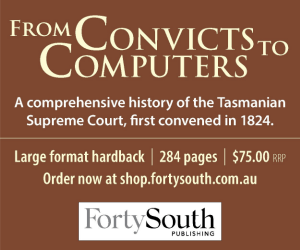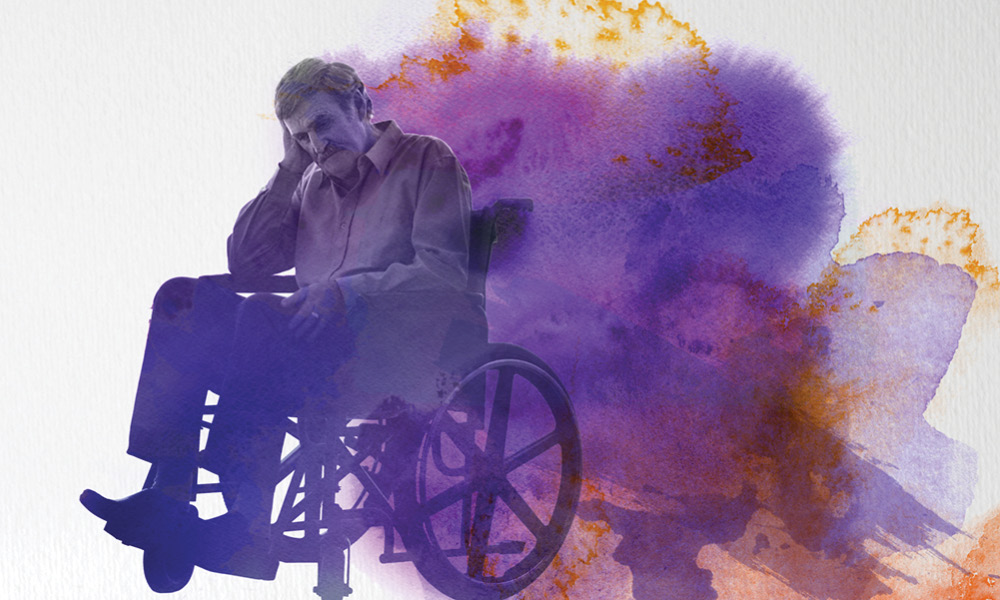Currently, the Commonwealth Government is reviewing the Aged Care Act (ACA) to hopefully improve aged care services in response to neglectful and abusive situations documented by the Royal Commission into Aged Care Quality and Safety.
These were some of the key findings:
- Despite high numbers of people with a diagnosis of dementia residing in residential aged care, inadequate care was provided for people with a diagnosis of dementia;
- Insufficient care is provided for patients who require palliative care;
- There is unregulated use of restrictive practices;
- Poor nutrition and,
- Poor access to healthcare, including medical specialist services.
Reform of the Aged Care Act and the accompanying regulatory framework, is just one part of improving the adequacy of legal responses to the needs of older people.
Another reform currently being considered by the Commonwealth and state and territory governments is working toward a nationally consistent model of financial enduring powers of attorney. This reform is long overdue. The rationale was outlined by the ALRC Elder Abuse Final Report. Aged Care and EPOA reform are linked. Although the Commonwealth regulates and subsidises aged care, the older person often pays a contribution, or in some cases they are completely privately funding their care. Often the personal funding of aged care is facilitated by attorneys acting in accordance with an Enduring Power of Attorney (EPOA).
Various nominee arrangements for Centrelink payments and My Aged Care access are also available with the consent of the older person to provide support to deal with the volume of decisions and reporting requirements around eligibility and appropriate level of fees.
An EPOA is routinely sought by the provider as these powers can often deal with the older person’s property and bank accounts. These financial powers therefore assist in the payment of fees, including large Refundable Accommodation Deposits (RAD) usually gained from the sale of the person’s home.
If the attorney has begun acting in their role (either because that has been agreed with the principal – if the power was to start immediately, or because the principal no longer has capacity for financial matters), they usually take on the role to pay aged care fees.
Generally, insisting on this level of power, by aged care providers, can result in a level of unintended consequences, sometimes leading to abuse. This can happen when the attorney becomes the substitute decision maker on a range of other issues. Although the Queensland legislation requires a level of participation from the principal, there is minimal oversight on how these powers are exercised. Ongoing overly restrictive attorney decisions, can, if left unchallenged result in social, psychological and emotional abuse (along with financial abuse). These may include limiting social contacts (phone calls, visits and outings), selling the home of the older person to another family member for an under-valued sum, or the attorney remaining in the property rent free, in breach of their overall fiduciary duties.
Concerns raised by family members about ‘ending up in aged care’ are often used as a “ploy” to drive older people to consider lopsided family agreements (often undocumented) or granny flat arrangements. These arrangements in exchange for care can result in the older person losing control of their assets, or not having their beneficial interests recognized and preserved. Once deprived of their major asset and along with that their hopes for ongoing support and care, they often require aged care without the necessary funds to support a refundable accommodation deposit, (RAD); or to fund legal fees to seek to recover their funds.
Meet John: He’s a 77-year-old man who lives in his own home. John has noticed considerable decline in his ability to look after his daily cares, following a heart attack. After he finished his rehabilitation, he has decided it is time for him to move into a residential aged care facility (RACF). However, the aged care facility has a policy which insists on John having an EPOA in place. John has never considered making this document but reluctantly agrees to make one. Without obtaining legal advice, John appoints his son as his attorney, in the EPOA document, effective immediately for financial decisions. The problems start as John soon has trouble finding out what is happening with his money. The RACF only talk with his son about his accounts; and the bank no longer allow him to access his statements. In time the RACF start commenting to John that their bills are not being promptly paid, and he now has a debt. John has become a victim of elder abuse, enabled by the policies and procedures of systems of care and guardianship arrangements.
John’s niece, Susan, has become aware of the situation. She tries to get Health Professional Reports completed so that John may revoke his EPOA document, or alternatively the tribunal may review the situation. However, the GP who sees John at the ACF is not willing to complete the form (as the request is not coming from his attorney), and his previous community GP won’t because they haven’t seen him for some time and know that John is not permitted to visit for an appointment.
Susan makes a referral to the Public Guardian (OPG) to investigate, but they need clarity about John’s capacity due to their legislative constraints (as they can only investigate a situation if the adult definitely has impaired capacity). Even if it was found that this was the case, given that John is ‘safely in aged care’, they may decide John’s matter is a lower priority.
As documented in the recent Office of Public Advocate (Queensland) 2022 report on adult safeguarding, relying on an assessment of impaired capacity is no longer contemporary rights-based practice.1 The preferred approach is that safeguarding is available for “at-risk” adults.
Revoking the power of attorney, and re-executing another EPOA, without evidence of capacity leaves John open to guardianship proceedings instigated by the attorney. OPG refer Susan to an advocacy organisation, who, after visiting John, contacts his GP, requesting a geriatrician review of his current decision-making capacity. This review takes six months. The geriatrician opines that John has requisite capacity to make another EPOA, and the advocacy organisation suggests that John re-connect with his previous lawyer to make the necessary documentation.
A major pathway into residential aged care comes from an older person being admitted to hospital because of an emergency or unplanned admission, never returning to their own home. If the older person does not have a valid EPOA and has been found during their admission to lack capacity for decisions, the older person may be subject to a QCAT application for guardianship and administration, sometimes with the family as the applicant, or the hospital social worker.
Guardianship hospital hearings occur across Queensland, with shorter delays than a regular hearing.2 This process has been instigated to ameliorate the impact of older people with unclear decision-making having a long stay admission in acute hospitals.
Although the legislation allows for the views and preferences of the person potentially subject to guardianship to be considered, often the person receives limited independent support from a lawyer or advocate before or during the hearing. The restrictions imposed by an Order for guardianship or administration are often unanticipated by the person and their friends and supporters. Once it is determined by the Tribunal that a person will be subject to guardianship orders, the full impact of an external decision maker is felt.
Meet Francois: She’s an 86-year-old woman who has relatives in Australia and France but is not particularly close to them. Her good friends Barbara and Jorge live nearby. Francois has a stroke and is taken to hospital. It takes the hospital some time to establish Francois’ family story and are suspicious of Barbara and Jorge, as they are not family members. Francois is determined to return home and unable to understand why staff keep telling her she ‘needs 24/7 care’ when she feels she has made a great recovery from the stroke.
The hospital lodges a QCAT application, seeking the appointment of the Public Guardian to approve Francois moving directly into residential aged care, and the Public Trustee to ensure the finances are managed. Francois thinks if anyone is appointed, it should be her friends who know her and care about her.
Francois is not provided an opportunity to return home with supports to try to help her transition, and the medical reports provided to the tribunal are more descriptive of the initial presentation of her stroke, without fairly providing an update of her progress and improvements. Francois feels she is being ‘stitched up’ and so does not engage well with her treating team or the QCAT proceeding. She is not provided access to independent advocacy or legal support.
QCAT has a hospital hearing program, allowing for less complex cases to be dealt with in four to six weeks. This allows for a shorter delay in discharge from hospital. The hearing will often resolve the questions of capacity. Without Francois being provided independent legal advice about her rights, the process, and likely outcomes, Francois is ill equipped to determine what sort of support she requires for the hearing.
Francois’ friends did not know they could assist Francois to make decisions, or be appointed as her decision makers, and were not encouraged to attend the hearing, as Francois was not participating. The Public Guardian and Public Trustee are both appointed.
These two straightforward scenarios raise all sorts of issues, not only for the individuals involved but also considering our current demographics. The ageing population has a range of impacts across our systems. The significant impact on our economy and care systems (both health and aged care) have been identified by the most recent Intergenerational Report.3 This report documents those costs associated with the ageing population and increased demand for care and support (inclusive of disability support and care, along with aged care) are two of the five key factors likely to shape our economy over the next 40 years.4 Further, our health system is also not well placed to respond to complexities of multiple health conditions as age, and changes are only beginning to be made for this adjustment.5
All of these impacts are often not sufficiently understood by the legal profession, nor associated civil or criminal justice systems. As the above case studies show, there is much to be done to seek justice for the increasing proportion of older Queenslanders, regardless of their health or disability status, or decision-making ability.
These include:
- Access to legal advice and advocacy for QCAT matters, particularly when the older person is in hospital and a change in level of care or support is being considered (such as moving into residential aged care against the preferences of the older person);
- Better understanding of the role of an attorney by aged care providers and safeguarding options by lawyers, when making an EPOA,
- Eg, when a person is acting under an EPOA, and the power started immediately, don’t presume the older person is lacking capacity, by reference to the attorney already “acting” in their role,
- Promotion of rights and inclusive processes under Supported Decision-Making arrangements,
- Eg, at least bring the older person into discussions around decision-making arrangements, to better understand their views and what key factors are important to them.
- Law reform to enable access to Tribunal ordered redress. This could include all avenues of redress currently available to the Supreme Court, as most older people are unable to afford Supreme Court applications for any form of restitution.6
Nationally, we have been aware of Australia’s burgeoning ageing population for a considerable period. Instead of ageist hand-wringing about the burden this brings, we need to engage older people and listen and involve them both individually and systemically to better respond to their legal needs and human rights.
The authors of this article are Karen Williams, Chair of the Health and Disability Law Committee, and Rebecca Anderson, Chair of the Elder Law Committee.
The QLS Elder Law Breakfast and Workshop will be held on 14 June at Law Society House, Brisbane. Guest speaker will be Age Discrimination Commissioner Robert Fitzgerald. Tickets here.
Footnotes
1 Office of the Public Advocate (Qld) Adult Safeguarding in Queensland, Volume 2, Reform Recommendations, p15.
2 2022-23 QCAT Annual Report, p10-11 for a discussion on increasing guardianship matters.
3 Australian Government, 2023 Intergenerational Report – Australia’s Future to 2063, 2023.
4 Ibid, 6.
5 https://www.abc.net.au/news/2024-03-10/geriatric-trauma-service-in-melbourne-alfred-hospital/103550576?utm_campaign=abc_news_web&utm_content=link&utm_medium=content_shared&utm_source=abc_news_web
6 Australian Law Reform Commission Elder Abuse Inquiry – A Legal Response, 2017, pp12-13.










Share this article